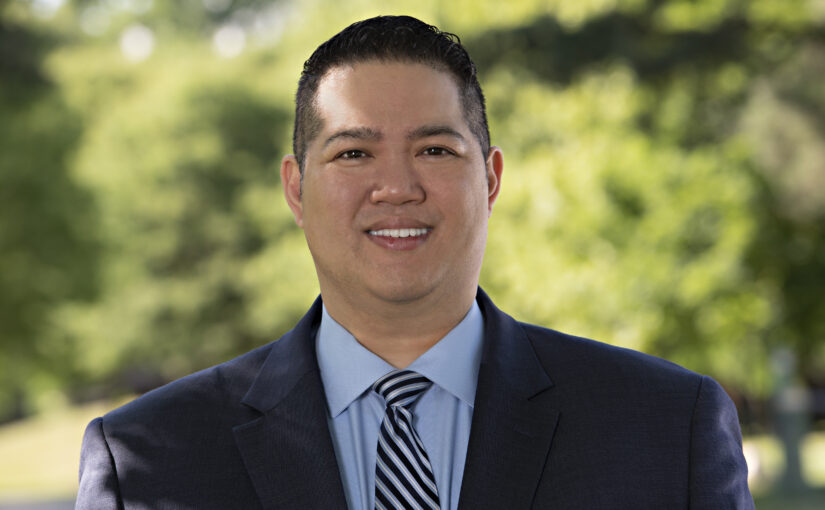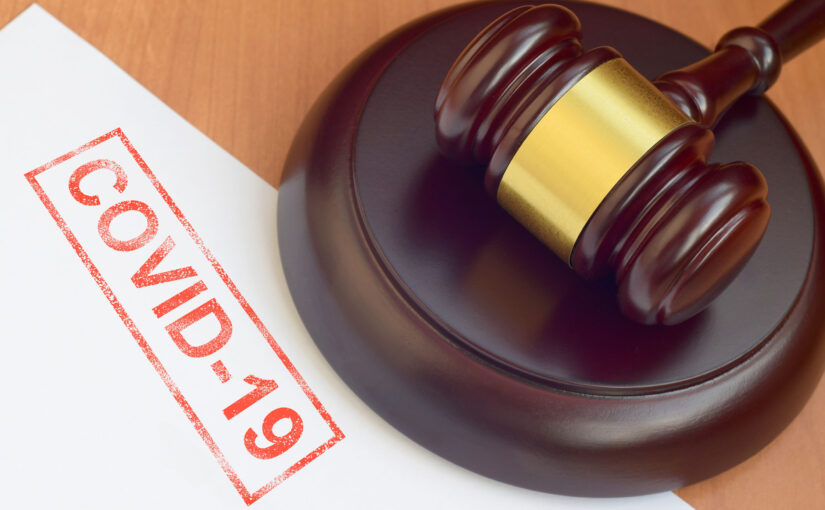By: FBMJ Attorneys Sarah Berard, Daniel Cortez, Juliana Khalifeh, and Saulius Polteraitis.
A decision July 30, 2020 from the Court of Appeals applies, for the first time in a medical malpractice case, a controversial 2016 opinion that allows plaintiffs in wrongful death cases recovery of lost wages of the decedent as well as loss of financial support. FBMJ attorneys believe this ruling improperly interprets the law and allows plaintiffs to pursue what amounts to double recoveries. Medical providers and their insurers should be aware of this development which could lead to higher potential exposure in medical malpractice suits.
In its 2016 ruling in Denney v Kent County Road Commission, the Court of Appeals held that plaintiffs could recover damages for a decedent’s wage loss under the Wrongful Death Act (WDA). In the wake of Denney, plaintiffs’ attorneys began to seek what have come to be called “Denney Damages” or attempts to “double dip” by asserting concurrent claims for lost wages and loss of financial support.
This week, the Court of Appeals issued its opinion in Estate of Langell v. McLaren, et al, a medical malpractice case. The full opinion is available here. While an unpublished opinion, the decision in Langell is the first opinion from the Court of Appeals applying the holding of Denney in the context of a medical malpractice case.
The Court found Denney’s interpretation to be based upon “sound statutory analysis” holding that the word ‘including,’ as it used in the WDA “broadly permits recovery of all types of damages deemed justified by the facts of the particular case.”
Langell was a wrongful death medical malpractice action tried to verdict in St. Clair County Circuit Court. The Estate alleged that an emergency medicine physician improperly attributed the decedent’s chest and back pain to a muscle strain when it was in fact an aortic dissection. Plaintiff’s decedent passed two days after discharge from aortic dissection. At the time of her death, plaintiff’s decedent was on disability leave from her employment due to depression. Notwithstanding this, the plaintiff claimed wage loss as an element of economic damage to the jury and the Court instructed the jury accordingly.
Following the jury’s verdict against the physician awarding plaintiff $490,000 in economic damages and $3.5 million in non-economic damages (reduced per MCL §600.1483), defendants appealed. In their appeal, among other issues, they challenged the Court of Appeals’ prior ruling in Denney v Kent County Road Commission, arguing that the WDA did not allow the Estate to recover damages for decedent’s lost wages as a matter of law.
In reaffirming its decision in Denney, the Court of Appeals panel (Markey, Kelly, and Boonstra) upheld the trial court’s ruling that wage loss damages were available under the WDA and accordingly, were recoverable by the decedent’s Estate.
We expect plaintiff attorneys in medical malpractice cases to cite Langell as further ammunition to support wage loss claims and anticipate continued attempts by plaintiffs to “double dip” by asserting concurrent claims for lost wages and loss of financial support (an issue not addressed by the Langell Court). Medical providers and healthcare systems should be prepared to aggressively defend against these efforts by way of directed discovery, aggressive pre-trial motion practice, and careful attention to jury instruction and verdict form drafting.
FBMJ is working with others to aggressively challenge this decision and stands ready to assist clients defend against double-damages decisions. Should you have any questions, comments, or concerns, please feel free to reach out to one of the medical malpractice specialists at Foley, Baron, Metzger & Juip, PLLC.
July 2020

Court of Appeals Cites Denney Damages in Medical Malpractice Ruling for the First Time
By: FBMJ Attorneys Sarah Berard, Daniel Cortez, Juliana Khalifeh, and Saulius Polteraitis. A decision July 30, 2020 from the Court of Appeals applies, for the first time in a medical malpractice case, a controversial 2016 opinion that allows plaintiffs in wrongful death cases recovery of lost wages of the decedent as
July 2020

Oakland County Violated Constitution by Keeping Tax Sale Proceeds
County governments that sell properties at auction to satisfy unpaid tax debts commit an unconstitutional taking when they keep the surplus proceeds of those sales beyond the amount of taxes owed. Relying in part on law from 800 years ago, the Michigan Supreme Court issued a ruling on July 17,
July 2020

Gov. Whitmer Extends Remote Notarization Provisions Through August 31, 2020
Remote notarizations will continue to be permitted through August 31, 2020 under a new order Gov. Whitmer issued this week. Executive Order 2020-158 extended a previous order encouraging the use of electronic signatures and remote witnessing of signatures due to COVID-19 and suspending in-person notarization and signing requirements. NOTARIZATION As with the
July 2020

Attorney Anthony D. Pignotti Featured Presenter for Michigan Society of Healthcare Risk Management (MSHRM)
FBMJ attorney, Anthony D. Pignotti, presented “Use and Disclosure of Electronically Stored Information in Healthcare” to the Michigan Society of Healthcare Risk Management (MSHRM) on July 15, 2020, as part of its Summer Webinar Series. The presentation covered the potential types of ESI generated and maintained in healthcare systems, the legal rules
July 2020

Carlos Escurel Joins Foley, Baron, Metzger & Juip, PLLC as an Associate Principal
Foley, Baron, Metzger & Juip, PLLC, is pleased to announce that Carlos Escurel has joined the firm as an Associate Principal. Escurel brings extensive experience in the area of medical malpractice to the firm, having defended healthcare professionals and institutions for over 17 years. His primary focus is handling complex medical
July 2020

Michigan State of Emergency Extends Into July: Here’s What Litigants Need to Know
Many of the more than 160 Executive Orders and Administrative Orders Gov. Whitmer and the Michigan Supreme Court have issued in response to the COVID-19 pandemic impact the legal system, the litigants, and their insurers. Below is a brief review of how these orders change important civil litigation deadlines ranging
July 2020

FBMJ Attorneys and Staff Come Together to Help Those in Need by Supporting “Project Can Do”
Since its founding, the attorneys and staff of Foley, Baron, Metzger & Juip have been committed to serving the firm’s clients, as well as the communities in which we live and work. Our CARES Committee organizes and leads community initiatives for the firm, including a recent effort to support Lighthouse
June 2020

Away With Solowy? Supreme Court Takes Up Appeal that Could Lead to Expansion of 6-Month Discovery Rule
By: Christina J. Green, Nicole C. Joseph-Windecker and Mitchell C. Jackson How long does a plaintiff have to file a medical malpractice case? Well, that could be changing soon, as the Michigan Supreme Court recently took up an appeal that may give plaintiffs more time to file suit. This appeal could impact the healthcare
June 2020

Attorney Brian Whitelaw Featured Speaker at Society for Vascular Surgery Webinar Town Hall Meeting
On May 15, 2020, FBMJ attorney Brian Whitelaw presented during a live webinar town hall meeting, “COVID-19 Town Hall: Legal and Financial Aspects of Restarting Your Clinical Practice,” hosted by the Society for Vascular Surgery. Brian joined a panel of 5 professionals, including vascular surgeons from the Mayo Clinic, University
June 2020

More Businesses Allowed to Open But Must Be Compliant
The start of June brings further relaxed restrictions in the State of Michigan as the Governor announced an end to the Stay at Home orders applicable to most Michigan businesses. This is the Governor’s recognition of the State’s overall improvement in combatting COVID-19, correlating with improved tracing efforts, health system

